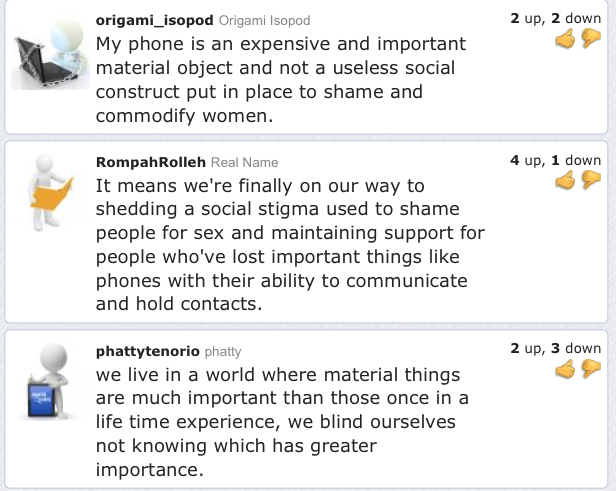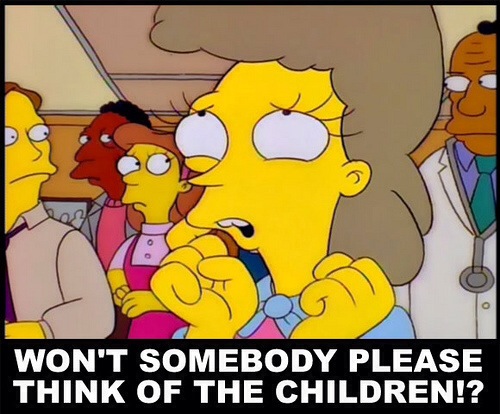Ferguson, MO.
Robin Williams.
Border refugees.
Gaza.
ISIS.
Ukraine.
Other current events that don’t immediately spring to mind on this particular Friday morning.
Too much sh!t to be flippant this week.

The Domestic Cat Genome Has Been Fully Sequenced, and It’s Fascinating, Annalee Newitz, io9, August 11, 2014
Now that we have this complete, annotated genome sequence, scientists will be able to analyze cat genetics much more effectively. Cats suffer from many of the same diseases as humans, including versions of leukemia and AIDS, so the cat genome may help us understand the development of these conditions better. Don’t worry — that doesn’t mean scientists will be experimenting on kitties. It just means that we can compare their genomes to ours to see whether there are similarities that shed light on why we are vulnerable (or not) to the diseases.
Cats also have what biologists call “a highly conserved ancestral mammal genome organization,” which means that many stretches of their genome haven’t changed much over evolutionary time. Put simply, domestic cats haven’t changed much since they first evolved. This could allow us to understand mammal evolution better. It could also answer a question that remains a mystery: why did dog domestication change canines so much, whereas cat domestication didn’t change cats much at all?
As migrant children face backlash, communities mobilize to drown out hate, Laurie Smolenski, Waging Nonviolence, August 10, 2014 (via Yes! Magazine)
Even some evangelical Christians (specifically, evangelical Christian women) are starting to think it’s overrated.
One could be tempted to hope this will mean the end to memes like this:

Two out of three people on the meme site seem to get it:

origami_isopod gets it:
My phone is an expensive and important material object and not a useless social construct put in place to shame and commodify women.
RompahRolleh gets it:
It means we’re finally on our way to shedding a social stigma used to shame people for sex and maintaining support for people who’ve lost important things like phones with their ability to communicate and hold contacts.
phattytenorio, not so much:
we live in a world where material things are much important than those once in a life time experience, we blind ourselves not knowing which has greater importance.
The Rise of the Ironic Man-Hater, Amanda Hess, Slate, August 8, 2014
“Misandry”—literally, the hatred of men—is an accusation that’s been flung at feminists since the dawn of the women’s movement: By empowering women, critics argue, feminists are really oppressing men. Now, feminists are ironically embracing the man-hating label: The ironic misandrist sips from a mug marked “MALE TEARS,” frosts her cakes with the phrase “KILL ALL MEN,” and affixes “MISANDRY” heart pins to her lapel. Ironic misandry is “a reductio ad absurdum,” explains Jess Zimmerman, an editor at Medium and the proud owner of a “MALE TEARS” mug. (“I drink them to increase my strength,” she notes.) “It’s inhabiting the most exaggerated, implausible distortion of your position, in order to show that it’s ridiculous.”
On its most basic level, ironic misandry functions like a stuck-out tongue pointed at a playground bully: When men’s rights activists hurled insults at feminist writer Jessica Valenti on Twitter last month, she posted a picture of herself grinning in an “I BATHE IN MALE TEARS” T-shirt, and dedicated the message to the “misogynist whiners.” But ironic misandry is more than just a sarcastic retort to the haters; it’s an in-joke that like-minded feminists tell even when their critics aren’t looking, as a way to build solidarity within the group. “A lot of young feminists who I follow on Instagram and love this shit are teenagers,” Valenti says. (Search the tag #maletears and you’ll find dozens of young women—and a few young men—posed with a novelty mug.) “The feminism they grew up with was the feminism of snarky blog posts, and this is a natural extension of that.”
Logic and feeling, Ophelia Benson, Butterflies & Wheels, August 10, 2014 Continue reading
I don’t understand many, many things about the anti-gay lobby, but I am particularly mystified by the claim that adoption by lesbians and gay men is a secret* plot to convert children to, uh, gayness or something, which they have to do because they can’t reproduce naturally.
The only way this would make any sense at all would be if this plan, or something like it, has already been in place for decades, because otherwise, where are all these gay people coming from?????
It’s almost like, I don’t know, parents who aren’t gay might have children who are, and parents who are gay might have children who aren’t gay. And that’s not even close to all the possible permutations.
Okay, I know it’s probably not a serious argument in the sense that the pundits making it genuinely believe in it. I suspect it’s a ploy to trigger fear responses in their readers/listeners/viewers by invoking the specter of the “danger to the children.” What both sad and frightening is how often that ploy works.

* But not so secret that these folks can’t see right through it!!! Checkmate, Satan!!!!!
PZ Myers on free speech:
You don’t have a right to an audience. This is a critical limitation of free speech right now, in a day when technology has made it trivially easy for abusers to circumvent the limitations of courtesy and protocol.
Words have power. Guns also have power; is unregulated access to guns the best path to a free society? We’re engaged in that experiment in the US right now, and I can tell you…no. Similarly, we have to recognize that words must be used responsibly.
Speech can do great harm. Words can enlighten and educate, but they can also oppress and mislead. As humanists, we must appreciate the importance of truth, and do what we can to stop the promulgation of lies.
There are no easy answers. A commitment to free speech is hard — and the easy answers are so attractive. On the one side we have the contingent arguing “You can’t say that!”, and on the other we have people saying, “I can say anything I damn well please, anywhere, anytime!”, and neither is right. We must be aware that the task is one of navigating between the two extremes.
That’s just his summary. The whole piece is worth a read.
I came across this vignette from the first season of the 1980’s Twilight Zone reprise. If you don’t want to watch the video (it’s just over ten minutes), be forewarned of spoilers ahead.
(Spoilers beyond this point.)
“Examination Day” is based on a short story by Henry Seslar first published in the 1950’s. I like this summary of the setup from All Things Dark and Magical: Continue reading
Sexual harassment was a major issue and topic of discussion at San Diego’s Comic-Con this year, where once again some people had to be reminded that a women dressing up in a possibly-skimpy costume—or any costume, or not in costume at all, for that matter—is not deliberately inviting any particular sort of attention.
To put it in simpler terms, cosplay ≠ consent.
Avicenna has some good observations on the problem:
Now think of it this way. This is something we love. Why would you not want it to be a safe space for women. They are entitled to the same stuff we are and the same safety. If a woman chooses to dress “hot” then sure.
Why would you drive women away from an event and a culture that was once defined by an abject lack of women. Aren’t we glad that we are mainstream? That our movies aren’t just fantasies or crummy but mainstream blockbusters. I mean holy crap, people are still talking about Heath Ledger’s redefining of the Joker. We are no longer weirdoes, we are cool.
And part of that is greater acceptance from groups that once ostracised us and from parts that we never expected. Women have begun to come to these events in greater numbers and they don’t feel welcome.
The sad fact is that many or most of the people who need to hear what he has to say have probably already heard it countless times from women, but are more likely to listen when it comes from a guy. I’ve been guilty of that myself many times.
Some people just refuse to see it that way, though. They can’t seem to get past the “dressing sexy” part, and as a result they portray men as uncontrollable sexual beings at the mercy of women in skimpy Lara Croft costumes (or whatever people are wearing nowadays—I’m actually a terrible geek.) Avicenna quotes one exemplar of male sexual entitlement and frustration: Continue reading
The Bullshit That Civilly Dare Not Speak Its Name, Batocchio, Vagabond Scholar, July 25, 2014
Civility does have value, but how it’s defined and actually observed (and enforced) can vary tremendously by community or venue. At its most basic, a civil discourse entails that each person gets his or her chance to speak without significant interruption and that needless personal attacks are avoided. A general ethic of cooperatively seeking the truth and exploring possible improvements to a given problem should also be in play. That said, among honest, sane, reasonably intelligent people, this standard is usually a given.
In contrast, in our national political discourse, the actual practice is that saying something that sounds harsh – even if it is factually, demonstrably true – is typically denounced as uncivil or otherwise rude, a breach of decorum. Newt Gingrich may be lying shamelessly, but the rules of the Beltway pundit game entail that calling him out as a liar is the true sin, not the lie itself. Rather than the hosts limiting the discourse to honest, sane, reasonably intelligent people (which necessitates qualitative judgment somewhere along the way), equal time – or rather, disproportionate time – is given to guests arguing in bad faith and/or with little to no expertise in the subject at hand. Consequently, civility as enforced usually does the audience a disservice.
How Big of a Problem is Harassment at Comic Conventions? Very Big. Janelle Asselin, Bitch Media, July 22, 2014
A blogger by the name of Mustang Bobby pretty much demolishes the claims of right-wingers, e.g. Senator Marco Rubio of Florida, that advocates of marriage equality are really the intolerant ones, for expecting the “traditional marriage” crowd to share our society with others:
Mr. Rubio implies that “traditional marriage” is under attack. By whom? Advocates for marriage equality don’t want to stop straight people from getting married. It’s not some zero-sum game wherein one is traded out for the other. How can advocating for committed unions between two people who happen to have the same form of genitalia threaten those marriages between two people who don’t?
That’s where the intolerance comes in. Pro-“traditional” marriage people don’t want same-sex couples to have the benefits of marriage, whereas those of us who are pro-marriage equality want everybody to have the benefits. So who is the intolerant one? Saying that same-sex marriage somehow denigrates or mocks straight marriage is yet again another sign of intolerance because that’s saying that the people in that marriage are less than worthy of respect simply because of their orientation. Again, who is the intolerant one? [Emphasis added.]
In the society that proponents of marriage equality want (i.e. the society in which we almost already live), “traditional marriage” proponents are welcome to live as they see fit. They just don’t get to tell others how to live—or how to love.